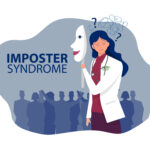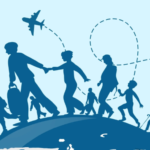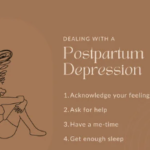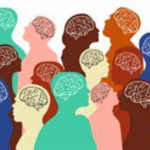Autism Spectrum Disorder (ASD) has become an increasing focus of public health discourse across the globe, and Africa is no exception. The challenges families face in managing autism in Africa differ vastly depending on whether they live in rural or urban settings.
While urban areas in countries like Nigeria often have better access to healthcare resources, rural areas are left grappling with a lack of infrastructure, awareness, and support systems.
However, there are individuals, like Adeola Dorcas Folorunso, who are committed to bridging this gap, ensuring that no child with autism is left behind, regardless of where they live.
In this article, we will explore the divide between rural and urban autism care in Africa, and how communities and advocates can work to close this gap.
The Growing Challenge of Autism in Africa
Autism in Africa is increasingly recognized as a pressing public health issue. Although the prevalence of autism on the continent is still under-researched, a study published in The Lancet Psychiatry found that autism spectrum disorder affects approximately lots of children globally, with significant variations in different regions, including Africa.
Another notable case is a publication in the National Library of Medicine titled “Global Prevalence of Autism: A Systematic Review Update.” The publication highlights that, since 2012, 99 estimates from 71 studies have been published, revealing a global autism prevalence that varies across regions.
The median prevalence rate was found to be 100 per 10,000 individuals, with a range spanning from 1.09 to 436 per 10,000. Additionally, the median male-to-female ratio was 4.2, and the median percentage of autism cases with co-occurring intellectual disability was 33%.
Unlike in some parts of the world, however, millions of children and families in Africa are impacted by autism, yet many are unaware of the condition or unable to access the necessary services for diagnosis, therapy, and education.
Cultural perceptions about autism in Africa can often be a barrier to adequate support. Many people in rural community view autism through a cultural lens, where it may be misinterpreted as a spiritual or behavioral issue.
This lack of awareness can lead to stigmatization, hindering children with autism from accessing essential services.
In contrast, in urban areas, there tends to be more awareness, thanks to a growing number of special schools, awareness campaigns, and healthcare professionals trained to identify autism early.
Adeola Dorcas Folorunso: A Champion for Autism Awareness
Adeola Folorunso is one of the many inspiring individuals committed to bridging the autism divide in Africa. Her journey began in Nigeria, where she worked as a nurse before relocating to Canada to further her education.
With a Bachelor of Science in Nursing and a master’s in health administration, Adeola has used her knowledge to advocate for equitable health policies, particularly those addressing the needs of children with special needs such as autism.
Her passion for making a difference led her to found Matermental, a Non-Governmental Organization (NGO) aimed at tackling health disparities in underserved populations.
Through Matermental, Adeola organized numerous health events, including a 2024 dental outreach for children with autism in Iwo, Osun State, Nigeria, where over 150 children received free dental services.
This initiative highlighted the unique needs of children with autism, such as sensory sensitivities that can make routine dental care difficult.
Adeola’s work underscores the importance of targeted, community-based programs to reach those who are often overlooked.
The Urban Advantage: Access to Resources
In urban centers, children with autism have a relatively better chance of being diagnosed early and receiving appropriate care.
Cities like Lagos, Abuja, and Ibadan have seen a rise in special schools, dedicated therapy centers, and trained professionals who understand the complexities of autism.
Access to these resources allows children with autism to thrive, provided they can afford the services. Public and private partnerships have played a role in increasing autism awareness and providing services in urban areas.
For instance, the Lagos State Government has invested in establishing early intervention programs and training healthcare providers to recognize autism from an early age.
The Nigerian Association of Psychiatrists (NAP) and other professional bodies have also been working to increase training and awareness among medical professionals and educators. Urban areas benefit from these services due to better infrastructure, funding, and a higher concentration of professionals.
Additionally, the rise of non-governmental organizations (NGOs) in cities has been vital in raising awareness and providing free or low-cost services. Organizations such as the Nigerian Autistic Society work tirelessly to offer support to families, train healthcare providers, and advocate for better policies for people with autism.
Despite these advancements, challenges remain in urban settings. The cost of autism-related therapies can be prohibitive for many families.
For instance, speech therapy, behavioral therapy, and occupational therapy are often expensive and not covered by insurance in many African countries. Additionally, public schools in urban areas, while offering more resources than their rural counterparts, may not be fully equipped to handle children with autism, especially those with more severe needs.
Rural Communities: Struggling to Keep Up
Rural areas in Africa are far behind in autism awareness and services. The lack of resources and trained professionals in these areas often means that children with autism go undiagnosed or misdiagnosed.
In its article, the African Research Excellence Fund talked about how Autism Spectrum Disorder (ASD) in Africa presents a complex landscape, shaped by cultural beliefs, limited access to resources, and the stigma surrounding the condition.
The African Research Excellence Fund takes pride in offering capacity-building opportunities for early-career African researchers, empowering them to develop the skills and expertise needed to advance their work and contribute to the scientific community.
Adeola’s work in rural Nigeria, such as the outreach program in Iwo, is an excellent example of how initiatives can address the needs of children in these underserved areas.
Her initiative brought dental services to children with autism who would otherwise have gone without essential care. Moreover, by engaging local communities, Adeola raised awareness about autism and its impact, reducing the stigma that often surrounds the condition.
Addressing the Urban-Rural Divide: A Call for Action
The divide between urban and rural autism care in Africa is glaring, but it is not insurmountable. Several steps can be taken to address this gap:
- Increase Awareness in Rural Communities: Grassroots campaigns are essential to educating rural communities about autism. Local leaders, including religious and community heads, must be involved in spreading awareness and fostering a more inclusive environment for children with autism.
- Telemedicine and Mobile Clinics: The use of telemedicine and mobile health clinics can help bridge the gap in rural areas. For example, parents in rural communities could access consultations with specialists in urban centers through online platforms. Mobile clinics can also travel to remote areas to provide diagnostic services and therapies.
- Training Healthcare Workers: It is crucial to train primary healthcare providers in rural areas to recognize the signs of autism. This can lead to early diagnosis, which is key to providing effective interventions and therapies.
Conclusion: Moving Towards an Inclusive Future
The autism landscape in Africa, particularly in Nigeria, is one of contrasts. While urban areas are making strides in providing better care and awareness, rural communities are still grappling with lack of resources and stigma. However, as professionals like Adeola continue to lead the way, and as more initiatives focus on bridging the gap, the future for children with autism looks brighter. Through concerted efforts, collaboration, and continued advocacy, we can ensure that autism is not a barrier to a full and meaningful life for children, no matter where they are from.
Reference
Pacifique.(2024). Alumni spotlight : Curbing Autism Spectrum Disorder (ASD) in Africa.Available from : Alumni Spotlight: Curbing Autism Spectrum Disorder (ASD) in Africa – Africa Research Excellence Fun
Zeidan J, Fombonne E, Scorah J, Ibrahim A, Durkin MS, Saxena S, Yusuf A, Shih A, Elsabbagh M. (2022). Global prevalence of autism: A systematic review update. Autism Res 15(5):778-790. doi: 10.1002/aur.2696. Epub 2022 Mar 3. PMID: 35238171; PMCID: PMC9310578. Available from : Global prevalence of autism: A systematic review update – PMC




















5 Responses
Great Work!!!!! Our government needs to partner with advocates like you to bring about long lasting change! This will alleviate barriers to diagnosis and treatment. Challenges such as shortage of specialised healthcare professionals will be improved. Cultural stigma surrounding mental health and developmental disorders will be reduced and many families will get the support they need.
Thank you Elsie Rogers. I am happy the above article was helpful. I agree with you on the need for prompt intervention through ongoing supports and access to affordable programs.
Groundbreaking analysis! T-Rex Game perfectly balances skill and accessibility.
🌈 Kaleidoscope of brilliance!
Incredible insights! Your perspective aligns perfectly with how Sprunki Pyramix revolutionizes gaming. The Sprunki Pyramix platform transforms creative expression. While we’re discussing innovation, Sprunki Pyramix offers boundless possibilities.